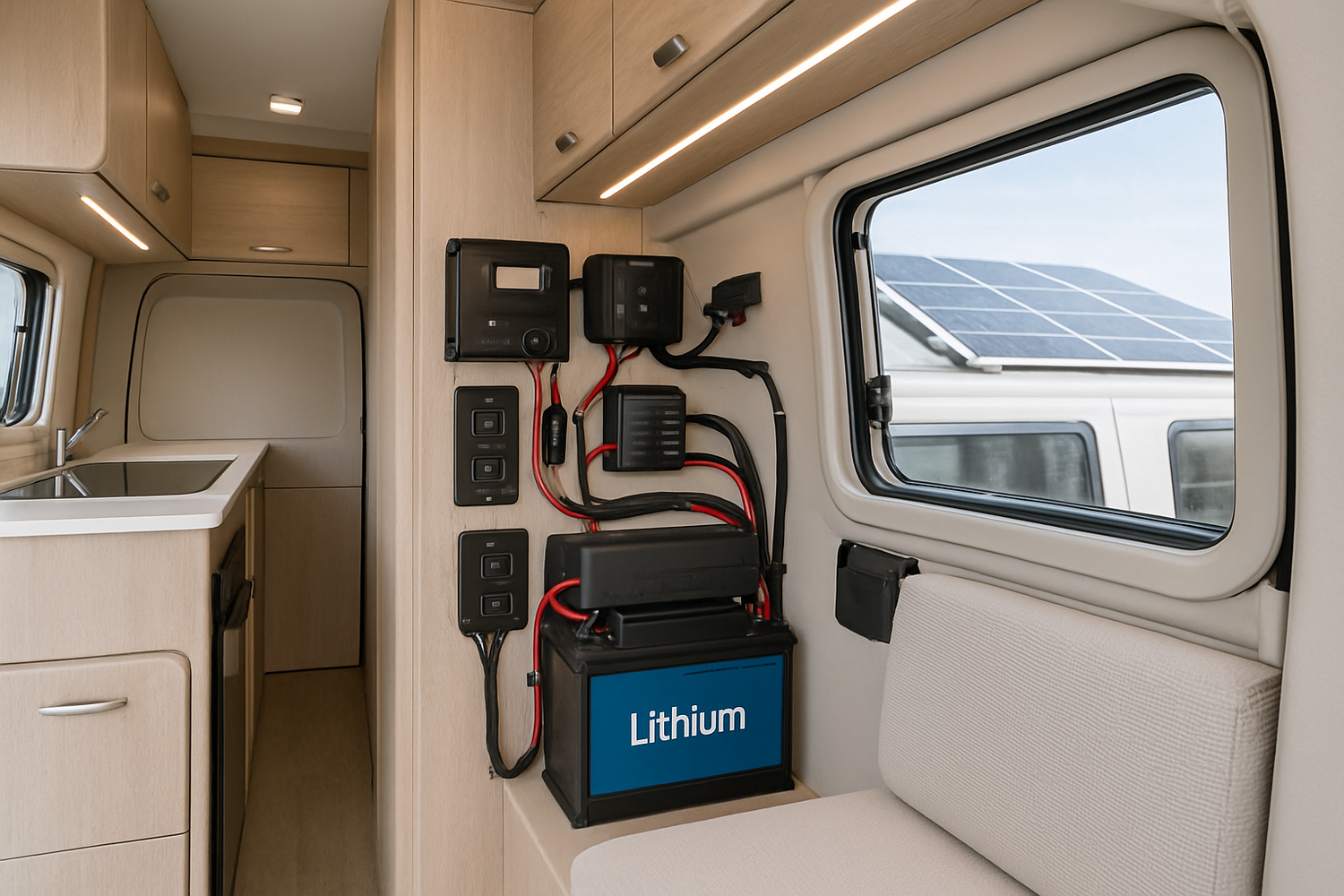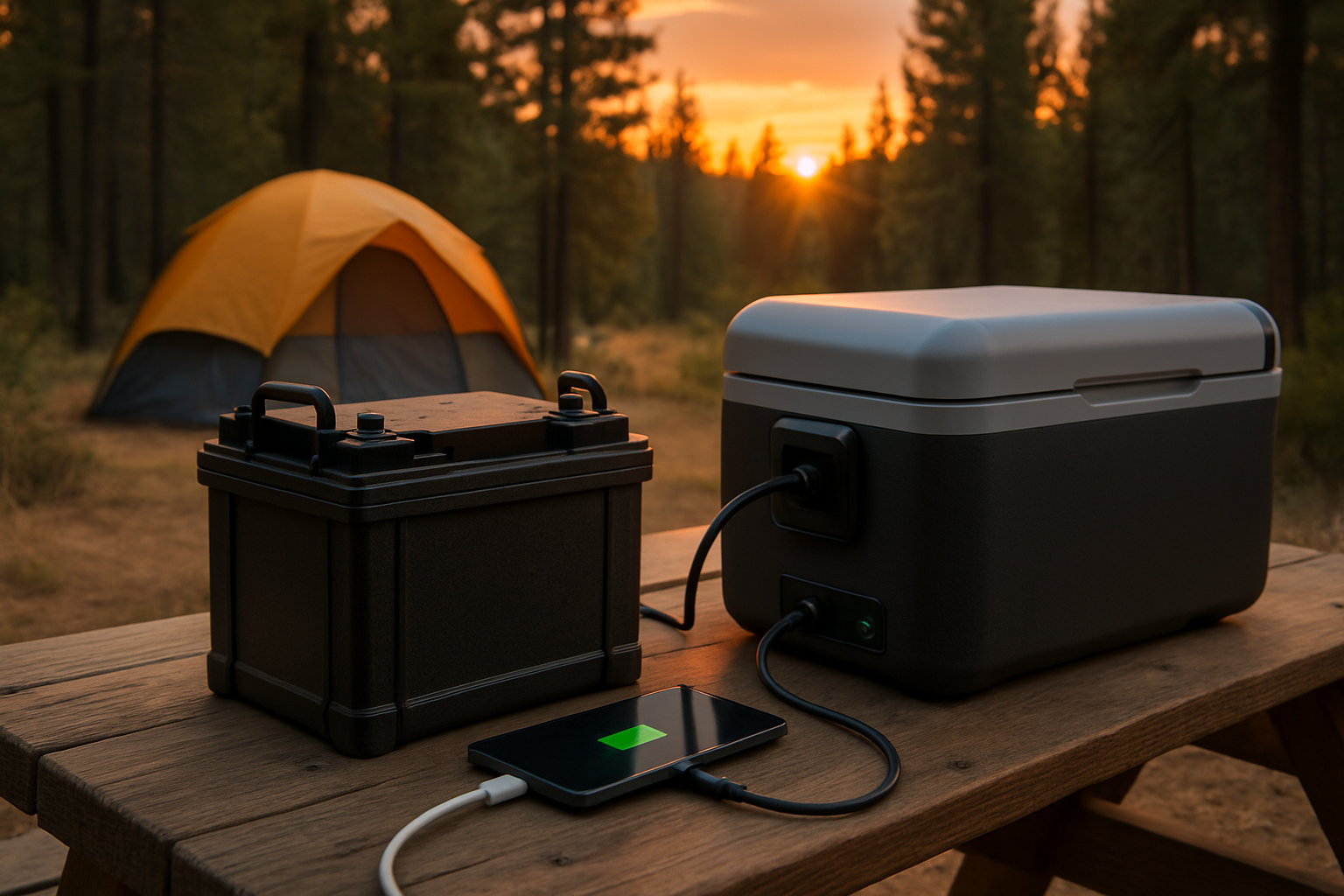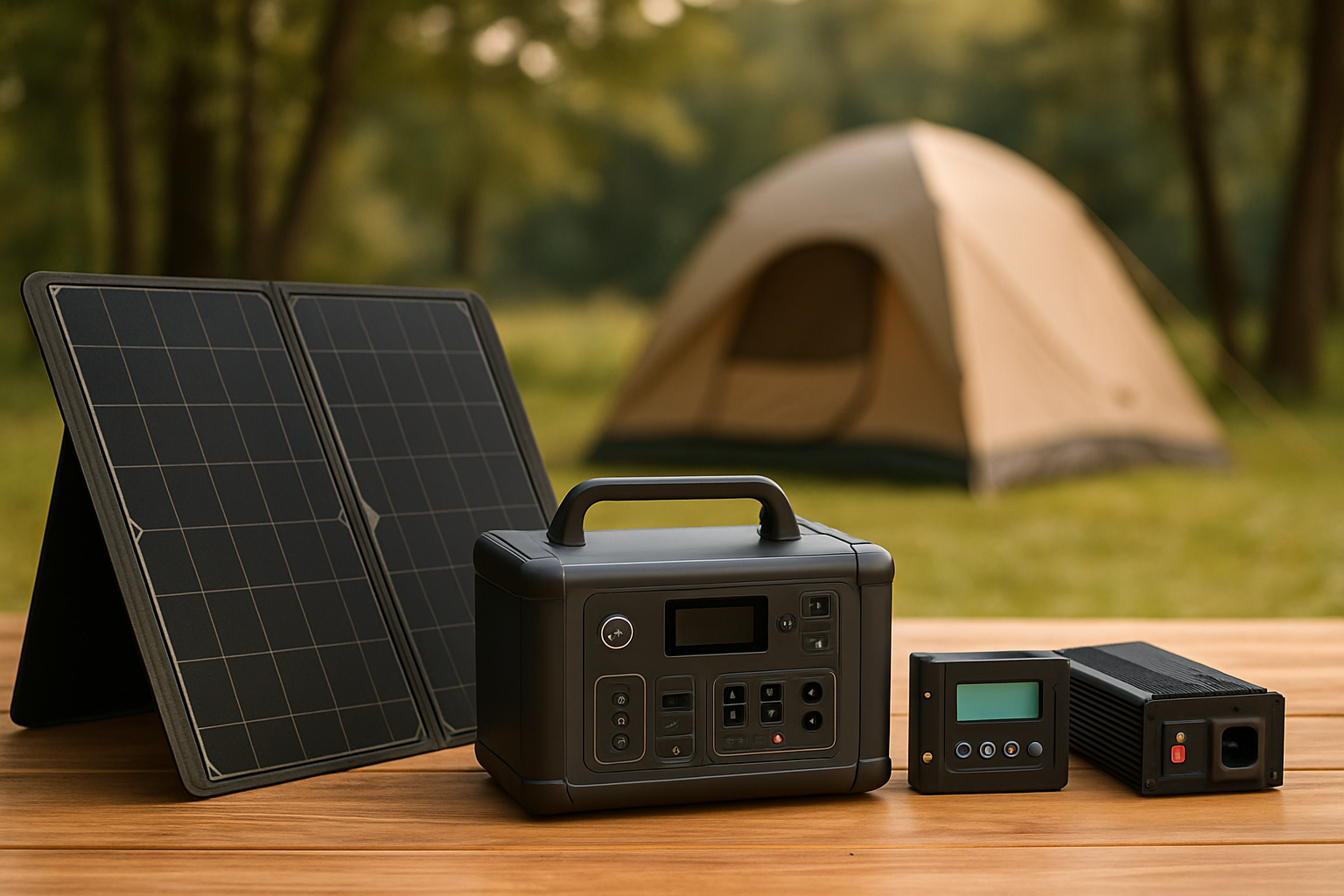The freedom of the open road is a core part of the camper experience. Yet, this freedom can be limited by an unreliable power supply. Flickering lights, a warm refrigerator, or the constant hum of a generator can disrupt the peace of nature. A modern solution to these challenges is the 12-volt lithium battery, a technology that offers dependable and efficient power for any mobile adventure.
Why Choose a Lithium Battery for Your Camper?
Upgrading your camper's power system is a significant decision. Lithium batteries, specifically those with Lithium Iron Phosphate (LiFePO4) chemistry, present compelling advantages over traditional lead-acid options. These benefits translate into a more convenient and reliable off-grid experience.
Superior Usable Capacity and Efficiency
A battery's amp-hour (Ah) rating can be misleading. The key is its usable capacity. Lead-acid batteries should only be discharged to about 50% of their rated capacity to avoid damage. A 12-volt lithium battery, on the other hand, allows for a deep discharge of 80-95% without degrading its health. This means a 100Ah lithium battery provides nearly double the usable power of a 100Ah lead-acid battery. A deeper understanding of these solar storage performance metrics is crucial for making an informed choice.
Significant Weight Reduction
Every pound matters in a camper or RV. Lithium batteries are typically less than half the weight of their lead-acid counterparts. A standard 100Ah lead-acid battery can weigh over 60 pounds, while a 100Ah LiFePO4 battery often weighs around 25 pounds. This weight saving can improve fuel efficiency and free up payload capacity for other essential gear.
Extended Lifespan and Long-Term Value
The initial investment in a lithium battery is higher, but its long-term value is unmatched. A well-maintained LiFePO4 battery can deliver 3,000 to 5,000 charge cycles. In contrast, a typical deep-cycle lead-acid battery offers only 300 to 500 cycles. This extended lifespan means you may go through several lead-acid batteries in the time one lithium battery serves you, making lithium a more cost-effective choice over its operational life.
Key Technical Aspects of a 12 Volt Lithium Battery
Understanding the technology behind these batteries helps clarify why they are a superior choice for camping power solutions. Their design and chemistry are optimized for safety, performance, and longevity.
The Chemistry: Lithium Iron Phosphate (LiFePO4)
Not all lithium batteries are created equal. LiFePO4 is the gold standard for RV and camper applications due to its inherent stability and safety. This chemistry is less prone to thermal runaway compared to other lithium-ion variants. According to the International Renewable Energy Agency's report, Innovation Outlook: Smart charging for electric vehicles, lithium-ion is a prevalent technology for both mobility and grid applications because of its increasingly favorable economics and performance.
The Role of the Battery Management System (BMS)
Every quality 12-volt lithium battery includes an internal Battery Management System (BMS). The BMS acts as the brain of the battery, protecting the cells from operational stress. It prevents over-charging, over-discharging, high temperatures, and short circuits. This intelligent monitoring ensures the battery operates safely and reaches its maximum potential lifespan.
Charging and Discharging Rates (C-Rates)
Lithium batteries can be charged and discharged at a much faster rate than lead-acid batteries. This capability, known as the C-rate, means you can replenish your battery quickly from solar panels or an alternator. It also means the battery can easily handle high-draw appliances like microwaves or coffee makers without a significant voltage drop, providing stable power when you need it most.
Practical Application: Sizing Your Camper's Power System
Choosing the right size battery is critical for a successful off-grid power setup. This involves a straightforward assessment of your energy usage and charging capabilities.
Calculating Your Daily Energy Consumption
An energy audit is the first step. List all the electrical devices you plan to use, their power consumption in watts, and the estimated hours of use per day. Multiply the watts by the hours for each device to get the daily watt-hours (Wh). Summing these values gives you your total daily energy requirement.
| Appliance | Power (Watts) | Hours of Use/Day | Watt-Hours (Wh) |
|---|---|---|---|
| LED Lights (x4) | 12W | 4 | 48 |
| 12V Refrigerator | 50W (25% duty cycle) | 24 | 300 |
| Ceiling Fan | 30W | 5 | 150 |
| Phone Charging (x2) | 10W | 2 | 20 |
| Total Daily Need | 518 Wh |
Pairing with Solar Panels
To achieve true energy independence, you need a way to recharge your battery. Solar panels are a perfect companion for a lithium battery system. As a general guideline, 200 to 400 watts of solar panels are effective for recharging a 100Ah battery, depending on sun exposure. An MPPT solar charge controller is recommended to maximize the energy harvested from your panels and ensure the battery receives the correct charging voltage.
Beyond the Camper: Broader Applications of Lithium Battery Storage
The same technology powering your camper is also transforming global energy systems. Lithium-based energy storage is instrumental in creating more resilient and efficient power grids.
Supporting Grid Stability
Large-scale battery storage systems provide essential services to the grid. As detailed in an IEA report on System Integration of Renewables, battery units can sense frequency deviations and ramp to full output almost instantaneously. This rapid response helps prevent blackouts by stabilizing the grid when a large power plant goes offline.
Deferring Infrastructure Investment
In some cases, installing battery systems is more economical than building new power lines. A report from IRENA, the Electricity Storage Valuation Framework, highlights how utilities use batteries to manage peak demand on congested lines. This 'virtual power line' defers the need for costly transmission and distribution upgrades, saving money for both utilities and consumers.
Final Thoughts on Your Power Upgrade
A 12-volt lithium battery is more than just a power source; it is an enabling technology for modern camping. It delivers more usable power in a lighter package, lasts significantly longer, and provides a higher level of safety and reliability. By upgrading to a compact battery storage solution like this, you equip your camper with a power system that matches the freedom and independence of your travels.
Frequently Asked Questions
Can I replace my old lead-acid battery directly with a 12-volt lithium battery?
In many cases, yes. Most 12V lithium batteries are designed as 'drop-in' replacements. You should verify that your charging system (alternator, converter, solar charge controller) is compatible with lithium battery charging profiles for optimal performance and safety.
Do lithium batteries work in cold weather?
Standard lithium-ion batteries have reduced performance in freezing temperatures, and most BMS systems will prevent charging below 0°C (32°F) to avoid damage. Some models include built-in heating elements for cold-weather operation.
Is a 100Ah lithium battery sufficient for my camper?
This depends entirely on your daily power consumption. A 100Ah lithium battery provides approximately 1280 watt-hours of energy. Calculate your daily needs to determine if this capacity is adequate. For many weekend campers with basic appliances like lights, a fan, and a small fridge, it is often sufficient.





Leave a comment
All comments are moderated before being published.
This site is protected by hCaptcha and the hCaptcha Privacy Policy and Terms of Service apply.